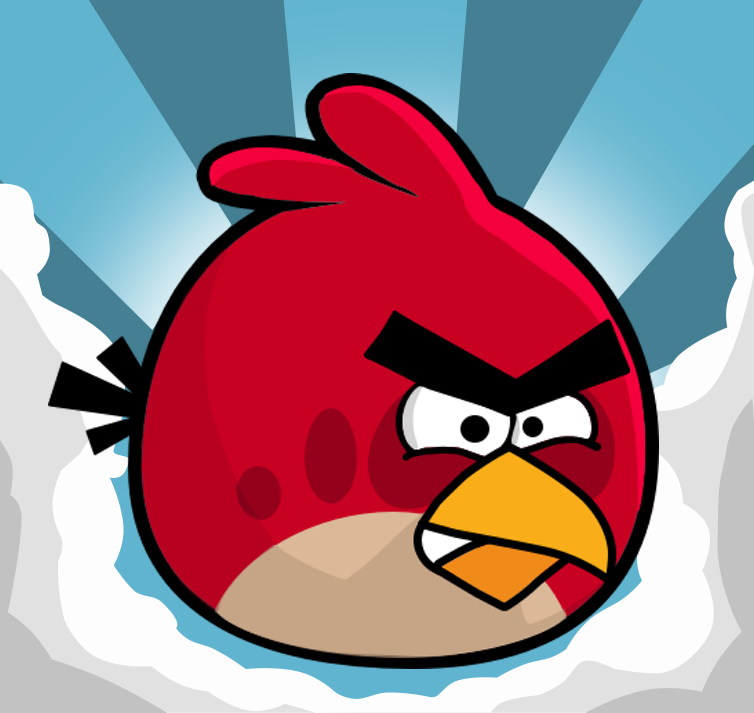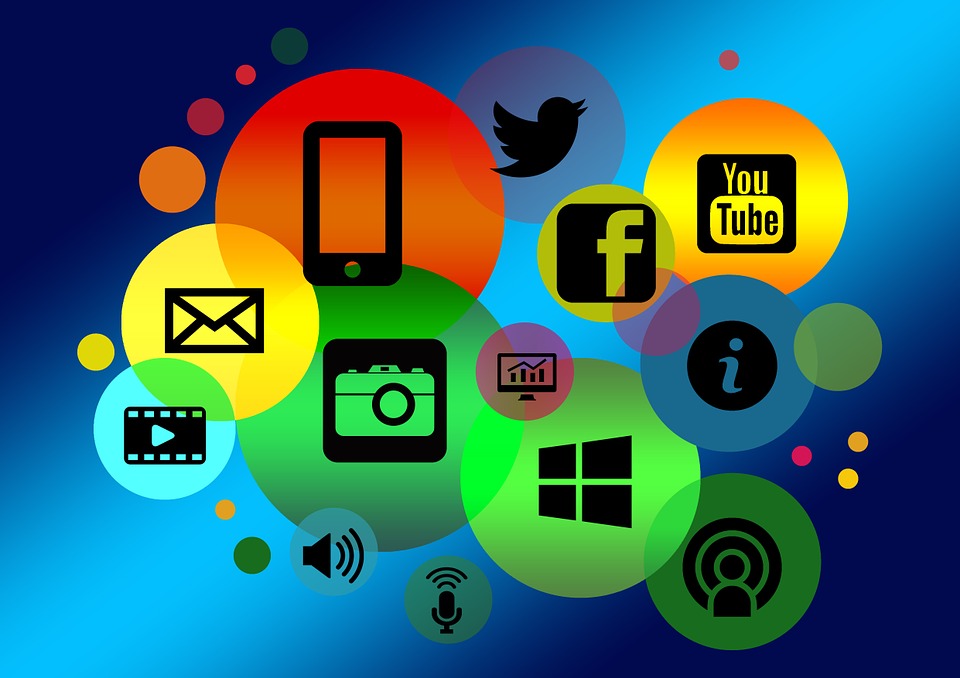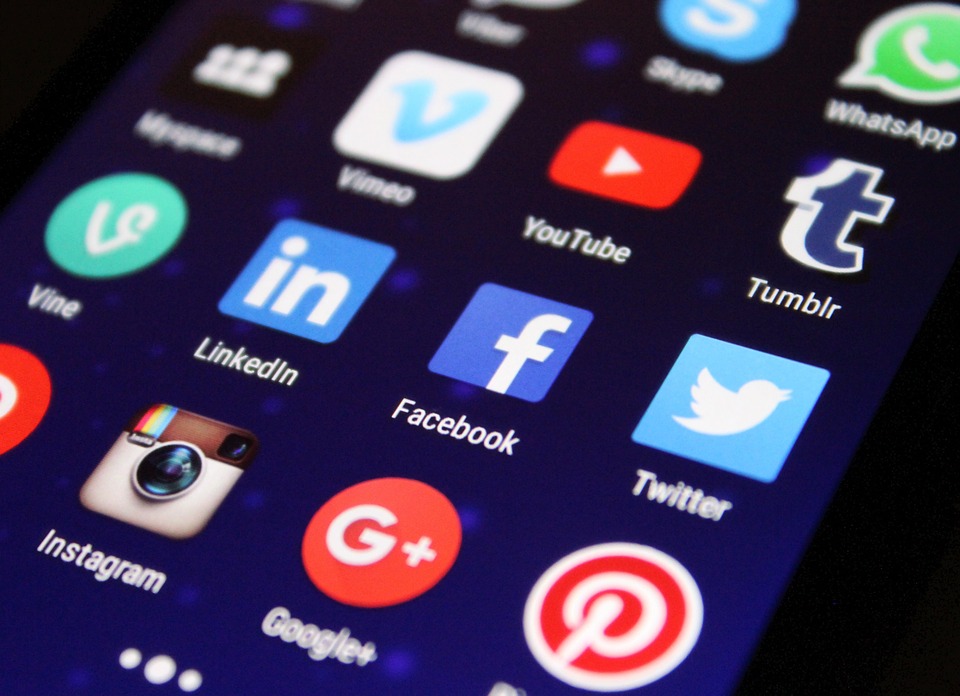Internet Language: Social Media
As we come to the end of our look at internet language, it would be remiss of us not to look at one of the most influential things to happen to us since the birth of the internet: social media.
Whether your particular poison is Facebook, Tumblr, Twitter, or any of the other vast numbers of social media sites up and out there, you'll know what we mean when we say these websites have become ways of living rather than mere things to pass the time. For most of us, they're in fact, both of those things.
Photo via Pixabay / Pixabay
We could start our discussion about social media with deciding what constitutes a social media website in the first place. The expected ones we’ve already stated, but what about examples like Wattpad for the writers out there, or DeviantArt for the artists? These are clearly social media sites as well, where people share their work and passions, and make friends along the way. Social media, then, is the websites and apps we use to interact, share content, and network with people from around the world.
You’ve got mail
With so many of us owning smartphones, most of us are probably well and truly ingrained in the notification culture of pings and bleeps telling us our colleague has a new baby photo posted on Facebook, our travelling friend's uploaded a questionable-palate of a meal on Instagram, or our favourite celebrity has shown their (lack of) quality with their latest brainless Tweet.
Not a day, or if we're honest, probably an hour goes by, without that itching to check our dashboards, timelines or Twitter feeds to see what we're missing out on, or need to comment on. It really does, when you put it like that, sound like an addiction.
Facebook is, without a doubt, probably the first social media source that comes to mind for all of us. Its explosion into everyday culture is quite the story. Even if you've not seen The Social Network, you know the premise: college guy produces online platform to essentially 'rate' people on the campus in terms of hotness, website goes viral, and said guy becomes multi-millionaire.
So how has this powerful yet simple website become so influential on the way we speak? Well for starters, we're all now familiar with terminology such as like, post, and status that would have meant something else entirely pre-Facebook. Veterans of Facebook will remember, or still use perhaps, the poke feature to show you're giving/wanting someone's attention.
Facebook has become a way for people to keep in contact with friends and families overseas; it’s probably saved a few marriages or sparked a few long distance romances along the way too - or the opposite; how many people these days have online ‘affairs’?
Facebook has also become, whether you agree with this or not, a way for potential employees to be vetted, or less perfect ones to be weeded out of the workplace. How many stories appear weekly about people losing their jobs because of a thoughtless comment on their Timeline?
Watch your words
It wouldn’t be fair to single out Facebook alone for such a change to our society, because from Instragram to Twitter, monitoring your words has become a way of life for the canny job seeker. We even have LinkedIn, a social media site meant to bridge the gap between social and networking.
Though not intentional, it is fair to say that our heavy reliance on social media of any kind has contributed vastly to the spread of English around the globe. Before our social media sites became multilingual and so much more international, it's pretty safe to say that almost all of our most popular social media sites were written solely in English. If you didn't speak English you had two choices available to you: learn English, or use your own language's local 'alternative'. To give you an example of the latter, let’s look at France.
Facebook came into existence back in 2004, but of course, there were similar sites up and out there already in use around the world, albeit on a much smaller scale. In France, since 2002 in fact, there has been Skyrock, which can be thought of as an equivalent to MySpace (let’s all take a moment to get nostalgic). An even bigger site in France is Copains d’avant, which has around fifteen million active members and has been around since 2001.
Learning a new language? Check out our free placement test to see how your level measures up!
Even sites which, technically-speaking, the language it's written in shouldn't really matter – for example Spotify, where it's all about that base music – you end up with local alternatives. Again, France provides a prime example with Deezer, founded back in 2007 and offering fair competition to Spotify with the range of music it allows you to stream. What’s interesting to see about sites like Deezer is that they too have gone down the multilingual route, with many language ‘versions’ available for users to access the site in apart from its ‘founder’ language.
Social media by country
Whilst we’re looking at countries and their own social media offerings, what about social media popularity worldwide? Does language availability have an influence over which social media sites are most popular in each country?
| Country | Most popular social media sites |
| United Kingdom | Facebook, Twitter, LinkedIn, Pinterest, MySpace, Google+ |
| Germany | Facebook, Google+, Xing, Wer-kennt-wen, MeinVZ/StudyVZ, LinkedIn, MySpace, Lokalisten |
| Spain | Facebook, Tuenti, Youtube, Twitter |
| France | Viadeo, Facebook, Twitter, LinkedIn, Pinterest, MySpace, Google+ |
| China | Tencent Weibo, Sina Weibo, QZone, Pengyou, Renren, Kaixin, WeChat |
| Russia | Vkontakte, Odnoklassniki, Moi Mir, Facebook, LiveJournal, Instagram, Twitter |
It looks like that answer is yes, but it is also pretty obvious that the most popular social media sites started out life as English language websites. And is probably why, at least in the case of China and Russia, there are so many Twitter and Facebook ‘alternatives’.
How do social media sites even choose which language to make themselves available in? It goes back to what we were saying in our first article in this series: ultimately, a website will go in the language direction where there is the demand. It's interesting to imagine those writing the code for these websites: can you imagine the disagreements over the 'correct' way to say 'tweet' or 'reblog' or 'pin'? In fact, when the Gaelic version of Twitter was being created, an entire year was added to the production time purely because translators couldn't agree on the correct way to say 'tweet'.

That’s… the wrong kind of tweet… via Flickr / Flickr
What does all of this mean in terms of influencing our use of language today?
The internet has become all-powerful in the rapid spread of knowledge, and as well as that, the virulent use of new terminology and slang.
There is a theory amongst language teachers that providing students with pieces of functional language, such as fixed phrases and expressions, allows students to feel confident in their command of the language they are learning. Can we then consider certain phrases we find solely on the internet as 'functional language' if we're talking about the spread of English, or even contributing to the evolution of language as a whole with things like internet slang and emojis?
In effect, is the internet the founder of a new, multilingual lingua franca, much like Esperanto was promised to be the replacement of so many spoken languages?
Perhaps we have posed more questions than we have answered throughout this series… but we hope that you have enjoyed our exploration into the world of internet language.

Photo via Pixabay / Pixabay



